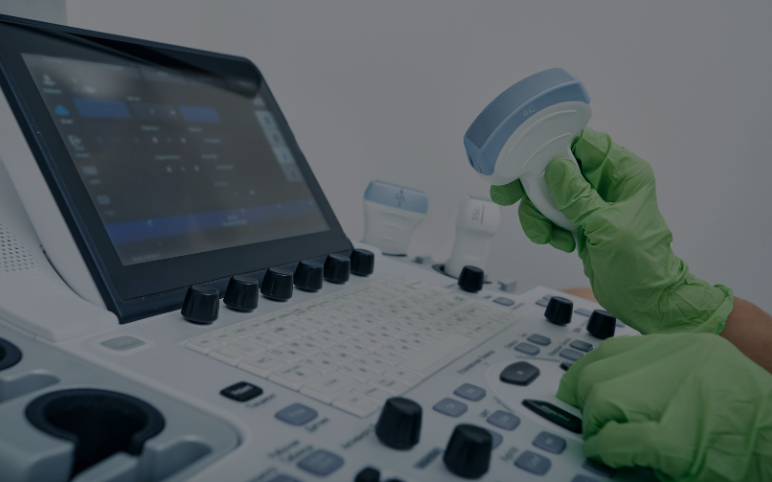The platform stimulates blood flow to the sexual organs using the gold standard in shock wave technology, restoring natural function and mitigating the effects of impaired vascular function.
Alma Duo employs cutting-edge acoustics technology based on electrohydraulic power, as well as low-intensity shockwaves that cause mechanical stress in the treatment tissue. This initiates a chain reaction of wound-healing responses that eventually stimulate the body to form new arterioles at the targeted site, resulting in improved blood flow.
“As a world-leading provider of energy-based solutions for the surgical, medical aesthetics, and beauty markets, we are focused on creating outstanding technology and solutions that enhance the well-being of the people we serve,” says Lior Dayan, CEO of Sisram Medical and Alma. Dayan added, “The launch of Alma Duo is a further example of how we are leading the way in developing innovative technologies that enable medical practitioners to offer real, effective solutions to issues faced by their patients, and improve their quality of life.”
Further, Dayan said, “Sexual wellness is an important treatment category for both men and women.” He added, “300 million men around the world are currently dealing with erectile dysfunction, and 60 percent of women report being dissatisfied with their sex life. Yet, sexual performance is a taboo topic that people often don’t feel comfortable talking about, even with their doctors. With the new Alma Duo, medical professionals can open up the conversation, bringing life-changing, pain-free treatment to their patients, without pills, needles, or surgery, and with zero recovery time.”
As per DelveInsight’s “Penile Implants Market” report, the global penile implants market was valued at USD 265.43 million in 2021, growing at a CAGR of 2.24% during the forecast period from 2022 to 2027 to reach USD 302.62 million by 2027. The demand for penile implants is witnessing positive growth owing to various factors such as the increasing incidence of penile cancer, increasing prevalence of erectile dysfunction, rising male population, and surge in impotency awareness.
As per the Delveinsight analysis, in by implant type segment of the penile implants market, inflatable implants are expected to hold a significant revenue share in the year 2021. The key attributes which support the market include, as they are easy to hide due to the ability to deflate when an erection is not desired, the three-piece inflatable implant has been linked to form more natural erections. Therefore, the benefits associated with inflatable implants increase the penile implants demand which drives the growth of the overall global penile implant market during the forecast period.
Phillips-Medisize Launched a Pen Injector Platform Designed to Lower Pharma Costs, Risks, and Market Barriers
On February 1, 2023, Phillips-Medisize, a Molex company, and leader in the design and manufacture of drug delivery, diagnostic, and MedTech devices, expanded its product portfolio with the introduction of a disposable pen injector.
The pen injector is designed to match user expectations and experiences with familiar disposable pen products, but it is noticeably smaller than most comparable market offerings. Aside from its small size, this pen injector has a flexible design with adjustable dosing and push-button colours to indicate different dosing and drug requirements for a variety of therapies, including diabetes, fertility, growth hormones, obesity, and osteoporosis.
“A Pen Injector is an important addition to Phillips-Medisize’s expanding Product and Platform portfolio that empowers Biopharma companies to accelerate the rollout of novel and generic drug treatments at significant economies of scale,” said Paul Chaffin, senior vice president and president of Medical and Pharmaceutical Solutions, Molex. He commented, “This ‘ready-to-go’ solution offers all of the advantages expected from ‘state of the art’ pen designs while benefiting from our decades of device development and large-volume manufacturing expertise to reduce the challenges of bringing affordable drugs and drug-delivery devices to market.”
According to DelveInsight’s “Injectable Drug Delivery Devices Market” report, the global injectable drug delivery devices market was valued at USD 19.63 billion in 2021, growing at a CAGR of 11.26% during the forecast period from 2022 to 2027, to reach USD 37.22 billion by 2027. The demand for injectable drug delivery devices is primarily witnessing growth on account of the increasing incidences of chronic conditions such as cancer, diabetes, and cardiovascular disorders among others, increase in demand for self-injectors, increase in biologics and biosimilar market, rising need and demand for patient compliance to treatment, and the rising innovations and technological advancement in this arena. Further, several technological advancements have led to an increased acceptance of injectable drug delivery devices among patients.
FDA Approved Abbott’s Spinal Cord Stimulation for People Living with Painful Diabetic Peripheral Neuropathy
On January 26, 2023, Abbott, committed to bringing life-changing solutions, including diagnostics, nutrition, medicines, and medical devices, announced that the US Food and Drug Administration (FDA) had approved the Proclaim™ XR spinal cord stimulation (SCS) system of the company, to treat painful diabetic peripheral neuropathy (DPN), a debilitating complication of diabetes.
DPN patients who require alternatives to traditional treatment approaches, such as oral medication, may benefit from the Proclaim XR SCS system. People who receive therapy from the Proclaim XR SCS system will also be able to use Abbott’s NeuroSphere Virtual Clinic, a connected care app that allows people to communicate with a physician and receive treatment adjustments remotely.
The Proclaim XR SCS system provides hassle-free pain relief with a battery that lasts up to 10 years at low-dose settings. With the Proclaim XR SCS device, patients will have the ability to control their therapy through an Apple device. The device can also be programmed using the company’s proprietary NeuroSphere Virtual Clinic technology, a first-of-its-kind remote patient care technology in the US that allows users to communicate with physicians, ensure proper settings and functionality, and receive new treatment settings/adjustments remotely, as needed.
“Diabetic peripheral neuropathy has long plagued people affected by type 1 and type 2 diabetes, often adding another area of disease management on top of the ongoing monitoring of their glucose levels to manage this challenging disease,” said Jason E. Pope, MD, DABPM, FIPP, president of Evolve Restorative Center in Santa Rosa, Calif. Jason added, “Abbott’s Proclaim XR spinal cord stimulation system provides patients with painful diabetic peripheral neuropathy the opportunity to obtain a better quality of life while more seamlessly fitting into their current lifestyles.”
Pedro Malha, vice president, of neuromodulation, at Abbott, said, “As a leader in diabetes care, Abbott is intimately familiar with the challenges people with diabetes encounter daily. This new indication for Proclaim XR will drive meaningful change in the treatment of pain associated with diabetic peripheral neuropathy and will be an important tool for physicians and patients in managing this debilitating condition.”
According to DelveInsight’s “Spinal Cord Stimulators (SCS) Market” report, the global spinal cord stimulators (SCS) market was valued at USD 2.25 billion in 2021, growing at a CAGR of 8.70% during the forecast period from 2022 to 2027, to reach USD 3.72 billion by 2027. The demand for spinal cord stimulators (SCS) is primarily attributed to the growing number of patients with chronic pain, and neuropathic pain in the shoulder, legs, and knee. The technologically advanced devices that are non-invasive, eliminate targeted pains, and cause a reduction in patient discomfort, with no side effects are likely responsible for a boost in the global spinal cord stimulators (SCS) market growth. Moreover, favorable government regulations for commercialization and launching products in the market and the rising geriatric population are some of the factors responsible for propelling the growth of the spinal cord stimulators (SCS) Market.
Axonics Received FDA Approval for Fourth-Generation Rechargeable Sacral Neuromodulation
On January 31, 2023, Axonics, Inc., a global medical technology company that is developing and commercializing novel products for the treatment of bladder and bowel dysfunction, announced that the US Food and Drug Administration approved the company’s fourth-generation rechargeable sacral neuromodulation system.
The newly approved Axonics R20 neurostimulator is labeled for at least 20 years of functional life in the body and reduces the frequency with which a patient must recharge their implanted device to once every 6 to 10 months for only one hour. In comparison, the third-generation recharges once a month for one hour. The Axonics R20 neurostimulator has the same small 5cc form factor as the Axonics R15, as well as the same tined lead and user-friendly patient remote control.
In March, Axonics intends to commercially launch the product in the United States.
“Delivering a superior patient experience has been at the forefront of our sacral neuromodulation development efforts,” said John Woock, Ph.D., executive vice president, chief marketing and strategy officer of Axonics. Woock added, “Patients with overactive bladder tell us that first and foremost, they value efficacy and a long-lived solution to address their chronic condition. The Axonics R20, which requires recharging just twice per year, represents another significant breakthrough for rechargeable neuromodulation devices and underscores our commitment to continuous innovation. We are confident that Axonics’ keen focus on the incontinence patient population and increasing public awareness of sacral neuromodulation has the potential to drive significant market expansion in the years ahead.”
According to DelveInsight’s “Neurostimulation Devices Market” report, the global neurostimulation devices market was valued at USD 5.82 billion in 2021, growing at a CAGR of 11.77% during the forecast period from 2022 to 2027, to reach USD 11.34 billion by 2027. The demand for the neurostimulation devices market is primarily motivated by the increasing incidence of chronic diseases, such as migraine and epilepsy, escalating product demand as add-on therapy, the prevalence of lifestyle diseases such as depression and chronic pain, adoption of technologically advanced products, and rising geriatric population.
As per the Delveinsight analysis, North America is expected to dominate the overall neurostimulation devices market during the forecast period. This domination is due to the growing number of patients suffering from various neurological conditions, the rising prevalence of neurological disorders and lifestyle-related disorders, and the demand for advanced technologies in neurostimulation devices, and others are driving the regional growth of the neurostimulation devices market.
First US Patient enrolled into SELUTION SLR Coronary Sirolimus DEB Study
On January 25, 2023, MedAlliance, announced that the first US patient has been enrolled at Medstar Washington Hospital Center in the SELUTION4ISR study evaluating SELUTION SLR™ to support the FDA approval. This milestone follows Investigational Device Exemption (IDE) approval in the US in October 2022.
SELUTION SLR is the first sustained limus-release coronary drug-eluting balloon (DEB) to receive FDA IDE approval for In-Stent Restenosis (ISR) indications.
MedAlliance’s proprietary DEB technology consists of MicroReservoirs containing a biodegradable polymer mixture mixed with the anti-restenotic drug “sirolimus” that is applied as a coating on the surface of an angioplasty balloon. These MicroReservoirs deliver the drug in a controlled and sustained manner for up to 90 days. The MicroReservoirs can be coated onto balloons and efficiently transferred to adhere to the vessel lumen when delivered via balloon expansion, thanks to MedAlliance’s proprietary CATTM (Cell Adherent Technology).
SELUTION SLR is commercially available in Europe, Asia, the Middle East, the Americas (outside the USA), and most other countries where the CE Mark is recognized.
“We are very excited to have enrolled our first US patient”, commented Dr. Don Cutlip, Co-Principal Investigator of the IDE SELUTION4ISR Study and the Chief Medical Officer at Baim Institute for Clinical Research. He added further, “This study addresses the important unmet need of treatment for the ongoing problem of in-stent restenosis without adding a layer of a metal stent.”
Co-Principal Investigator Prof. Roxana Mehran, Mount Sinai Professor in Cardiovascular Clinical Research and Clinical Trials, added, “This is an exciting day for PCI in the USA. DEB is the standard of care for ISR around the world, except in the US. Treating coronary ISR is challenging and having DEB technology made available through a well-designed and conducted randomized clinical trial is the next step. This trial is now underway and this is great for our patients.”
“This is another significant milestone for MedAlliance: we were the first sustained limus release balloon to receive FDA IDE approval, the first to treat a US peripheral patient, and now the first to treat a US coronary patient. This is the culmination of a multi-year R&D program that delivered comprehensive pre-clinical data meeting the very high standards of the US FDA”, added Jeffrey B. Jump, MedAlliance Chairman, and CEO. Jeffrey further said, “We are very pleased with the high level of market acceptance we are experiencing in Europe, Asia, and South America, and we look forward to entering the US market following FDA approval.”
According to DelveInsight’s “Drug-Eluting Stents Market” report, the global drug-eluting stents market was valued at USD 2.57 billion in 2021, growing at a CAGR of 8.09% during the forecast period from 2022 to 2027 to reach USD 4.08 billion by 2027. The drug-eluting stents market is slated to witness prosperity owing to factors such as the growing prevalence of cardiovascular diseases which can further be attributed to the increase in the geriatric population wherein aging is considered to have a deleterious effect on blood vessels, the growing prevalence of lifestyle disorders such as hypertension, diabetes, and obesity that are linked to affect the health of blood vessels in long term and drastically increase the probability of atherosclerosis, and the growing focus on developing a newer generation of drug-eluting stents to minimize post-procedural complications are further expected to result in the appreciable revenue growth in the drug-eluting stents market during the forecast period (2022-2027).
AtriCure Announced the First Patient Treated in the LeAAPS™ Clinical Trial
On January 31, 2023, AtriCure, Inc., a leading innovator in surgical treatments and therapies for atrial fibrillation (Afib), left atrial appendage (LAA) management, and post-operative pain management announced that the first patient was treated in the Left Atrial Appendage Exclusion for Stroke Prevention (LeAAPS™) clinical trial.
LeAAPS™ is a prospective, randomized, blinded, superiority, investigational device exemption (IDE) clinical trial designed to assess the safety and efficacy of the AtriClip® LAA Exclusion System for the prevention of ischemic stroke or systemic arterial embolism in cardiac surgery patients at high-risk for these events but without a history of Afib, which accounts for a sizable portion of the market. The trial will enroll up to 6,500 patients from up to 250 different sites around the world, making it the largest randomized clinical trial for surgical LAA exclusion. The goal of LeAAPS is to educate and better define clinical practice and treatment guidelines for stroke prevention in patients undergoing planned cardiac surgery who are at high risk of ischemic stroke and systemic embolism.
The trial will be completed in collaboration with the Population Health Research Institute (PHRI), which is associated with McMaster University in Hamilton, Ontario. PHRI is a clinical research organization that has organized an extensive international network of committed collaborators in 102 countries. PHRI has significant experience and expertise in designing and executing large, clinical studies.
“The LeAAPS trial is a landmark study to evaluate the prophylactic use of AtriClip devices for stroke reduction in cardiac surgery patients without a preoperative Afib diagnosis, laying the groundwork for a new frontier in stroke prevention,” said Michael Carrel, President and CEO of AtriCure. He remarked, “We have an impressive roster of world-class physicians and hospitals that will be enrolling patients, and we see a substantial opportunity to leverage the AtriClip platform for better long-term outcomes in this patient population while expanding our markets.”
Dr. Richard Whitlock, Cardiothoracic Surgeon, at McMaster University, and Global Principal Investigator for the trial, said “LeAAPS is one the largest randomized controlled trials in cardiac device history, and we expect it will establish a new standard of care for patients undergoing cardiac surgery.” Dr. added, “A fantastic multidisciplinary team has designed the trial, and we’re all excited to advance the understanding of the atrial disease, atrial fibrillation, and stroke.”
According to DelveInsight’s “Left Atrial Appendage Closure Devices Market” report, the global left atrial appendage closure devices market is anticipated to grow in the coming years. Due to the increasing prevalence of atrial fibrillation, one of the most difficult conditions requiring appendage treatment, there has been a significant demand in the industry. A high-calorie diet, smoking, and physical inactivity have all been linked to an increase in the prevalence of atrial fibrillation. The industry is experiencing strong demand as a result of lifestyle changes, improved access to healthcare services, and an aging population prone to CVDs. Furthermore, electrophysiology procedures represent a significant market opportunity.



